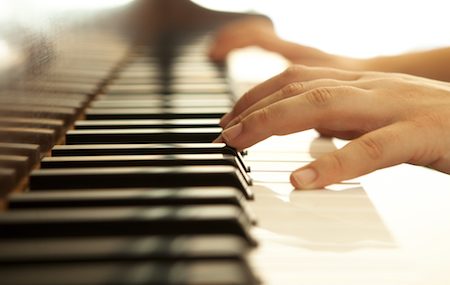Why do you play the piano? Ask dozens of students and they’ll all give you different reasons. For fun. For enjoyment. For skill. Possibly even for a career.
What’s more, learning the piano can ensure a lifelong skill. Unlike sports or other activities, piano is something you can enjoy and take part in for the rest of your life. And there’s further reason to so. According to many studies, there are many benefits of learning to play the piano
As we age, the ability to process usually slows down. Some studies show that if you continue to be active in playing the piano, the process doesn’t occur as fast. Playing the piano can also help slow memory loss, giving you the ability to continue to work through complex problems much longer in life.
Have you heard that musicians are better at math? There’s scientific evidence proving it. If you’ve heard of “The Mozart Effect”, it showed that even listening to Mozart for ten minutes before performing specific tasks can increase a wide variety of skills, including comprehension. A great reason to put classical music on while you study or attempt to solve problems.
If you’ve ever sat down at the piano for even a moment, you know it takes a lot of concentration to put every action together. Both hands touch different notes, while your eyes focus on reading sheet music. That means every time you sit down you’re working at controlling both hand and eye coordination.
Learning the piano no matter what your age can give you a lifetime of enjoyment. It’s something you can play, listen to, and enjoy for many years to come.
Are you ready to learn the piano? Get started by finding the perfect piano for your home. Stop by today and see our full selection of acoustic and digital pianos. There’s a perfect one waiting for you.


